
Good blood circulation is vital to your health
Blood circulation is essential for a healthy, functioning body. If it’s poor, it causes symptoms like numbness, pain, and muscle cramps, among others. And research shows there are several different causes for poor circulation including peripheral artery disease, diabetes, obesity and more. Although medication is often used to treat circulatory issues, noshing on these foods that improve circulation could help, too.
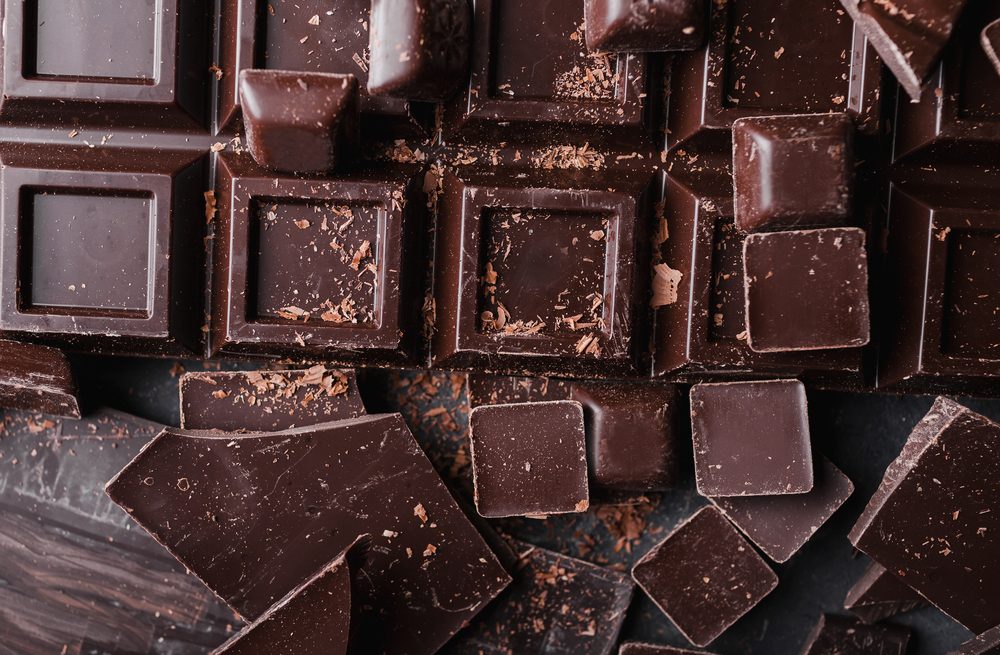
Dark chocolate
Have you been wondering how to improve circulation? You might consider eating chocolate, says Steven Gundry, MD, a cardiologist who is the director and founder of the International Heart & Lung Institute as well as the Center for Restorative Medicine in Palm Springs and Santa Barbara, California. “In moderation, dark chocolate is a fantastic addition to your diet,” he says. “Dark chocolate is shown to help your body produce nitric oxide, which plays an important role in protecting your heart and veins.” Cocoa contains antioxidants that may help manage blood pressure and cholesterol and improve blood flow. Dr. Grundy advises choosing dark chocolate that’s at least 72 per cent cocoa.
Here are the signs you might have an unhealthy gut.

Turmeric
Turmeric, also known as “the golden spice of India,” is a gem for keeping arteries unclogged and improving circulation, thanks to the chemical curcumin that gives it its colour. According to Dr. Gundry, however, turmeric is a tricky spice: “It’s actually poorly absorbed on its own unless it is mixed with Bioperine, a compound found in black pepper.” His solution: Eat curry once a week, which contains both black pepper and turmeric.
Check out these other health benefits of turmeric.
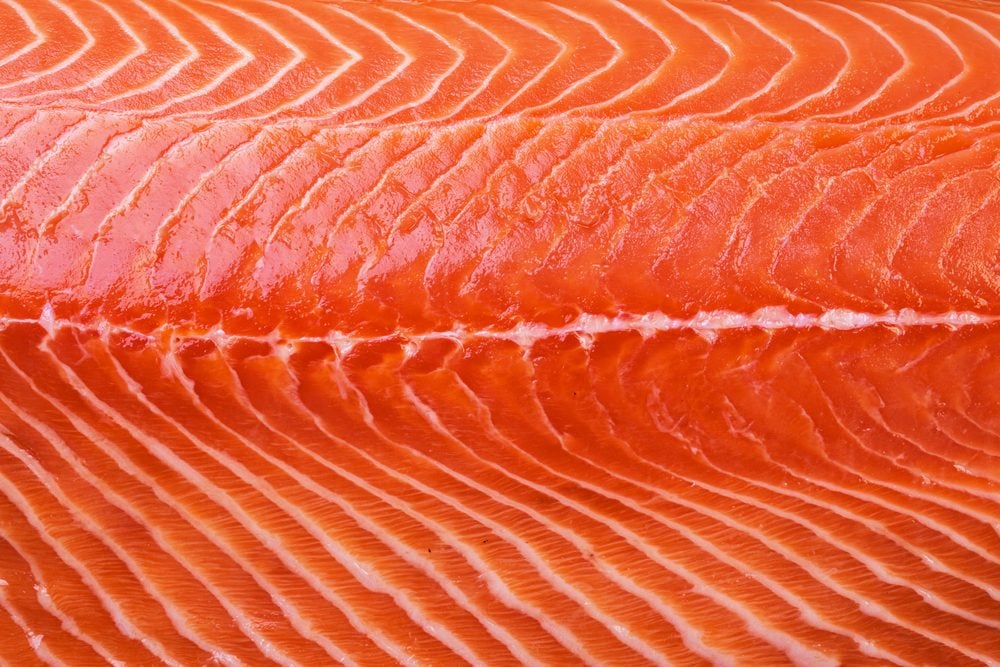
Salmon
Salmon, lake trout, herring, sardines, albacore tuna, and mackerel are rich in omega-3 fatty acids, which are essential for overall health. The American Heart Association recommends consuming two servings per week. Research shows an omega-3 fatty acid deficiency results in poor circulation, according to the National Institutes of Health. Salmon, which is high in omega-3s, contains natural blood-thinning and anticoagulant properties, says Brooke Alpert, RD, dietitian, and founder of B Nutritious in New York City. “This allows for an improvement in circulation for your entire body,” she says. Alpert advises choosing wild-caught salmon whenever possible.
These facts about seafood will change how you fish forever.
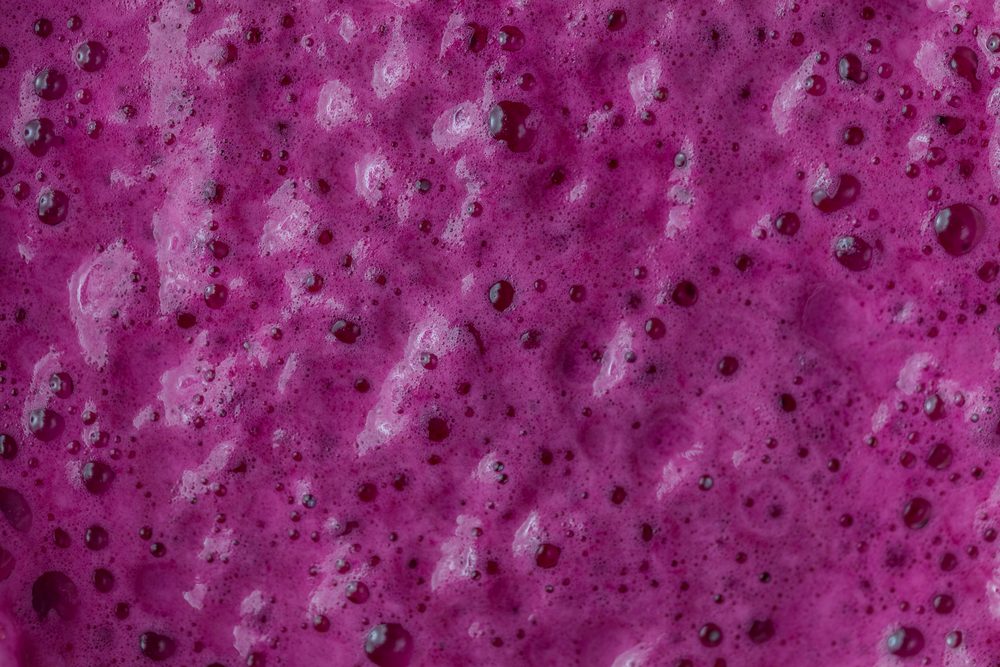
Beet juice
You may have read that beets are great for athletes because they increase levels of nitric oxide, which helps increase blood flow and gets oxygen to the muscles more quickly. Drinking beet juice is an excellent way to improve circulation, even if you’re not an athlete. “Some studies have shown that consuming one to two cups of beet juice per day reduced blood pressure in people with high blood pressure and improved walking performance in patients with peripheral artery disease who experience pain in the legs during walking,” says Steven Hertzler, PhD, RD, senior scientist for clinical research in global science and medical affairs at Abbott Nutrition in Abbott Park, Illinois.
Don’t miss these natural remedies for high blood pressure.
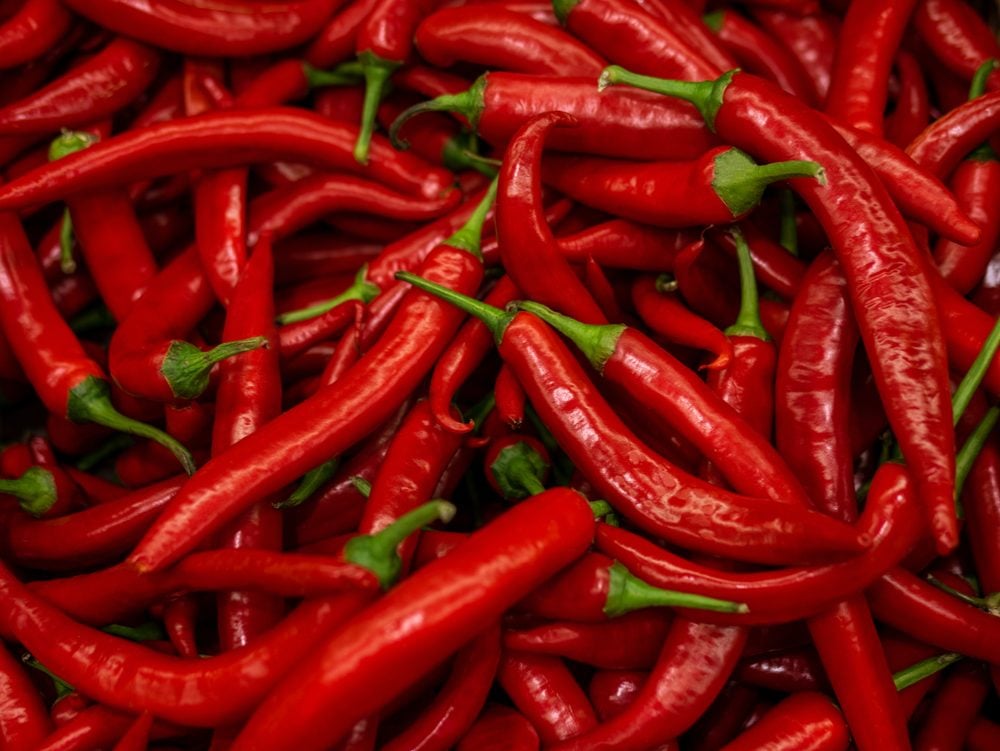
Cayenne pepper
Capsaicin is the active ingredient that gives cayenne pepper its heat. “There is some evidence that this compound can affect blood pressure and improve blood flow,” says Ginger Hultin, RDN, spokesperson for the Academy of Nutrition and Dietetics and owner of ChampagneNutrition, based in Seattle. Other types of peppers that contain capsaicin include green and red chilies, jalapeño peppers, and tabasco peppers. She suggests stirring cayenne into eggs, sauces, and salad dressings and using it to flavor seafood and chicken. “You can even use it to spice up treats like brownies, muffins, cookies, and cakes,” she says. One caution: “Capsaicin is known to mildly thin the blood, so it shouldn’t be used with other blood-thinning medications or supplements.”
These are the best foods to eat to avoid clogged arteries.
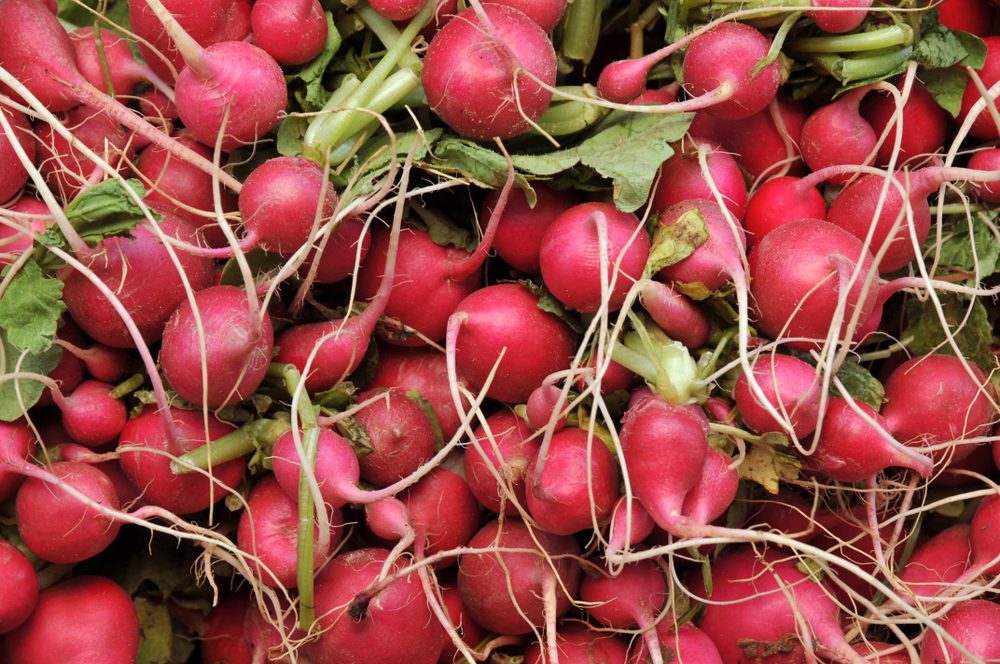
Radishes
It’s easy to pass by radishes when you’re shopping for veggies: Some people think they taste a bit bitter, and they’re often thought of as only a topping. But if you’ve been wondering how to improve circulation, give these bright red beauties another look. “Radishes are rich in minerals, including potassium, that help normalize blood pressure and increase blood circulation,” says dietitian Jackie Arnett Elnahar, RD, co-founder, and CEO of TelaDietitian, based in Syosset, New York. Each half cup of sliced radishes contains 135 mg of blood pressure-lowering potassium.
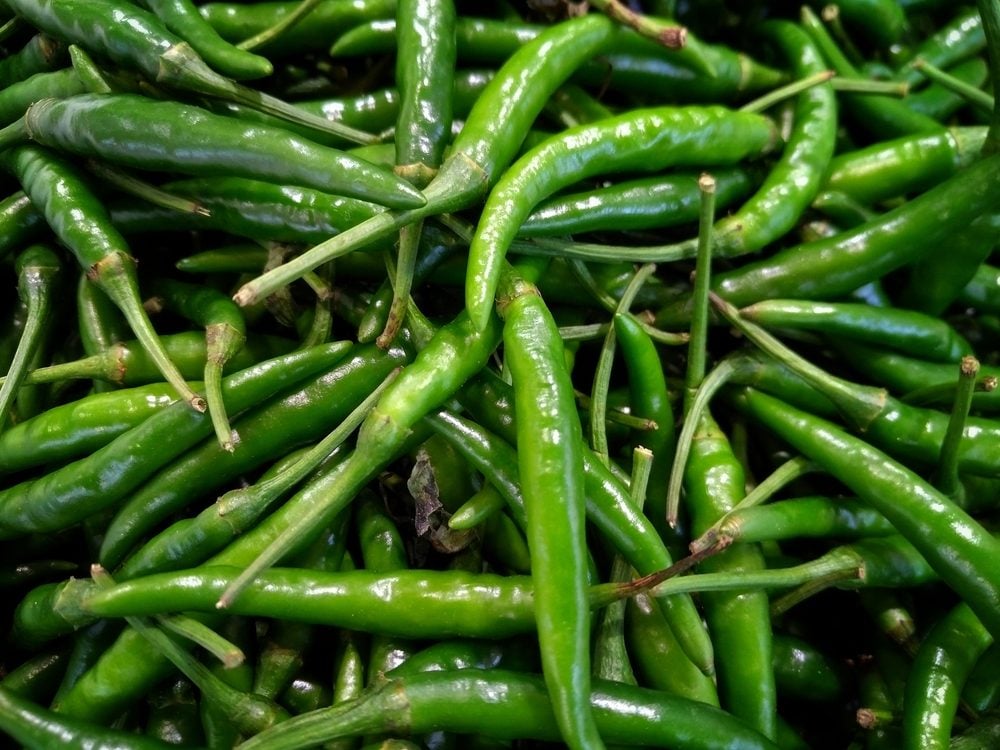
Chili peppers
If mild green bell peppers are as spicy as you get, you may want to train your taste buds to like a little more heat. “Chili peppers give a kick to the blood, increasing the circulation around the body,” says Arnett Elnahar. In a 2015 study published in the BMJ, researchers looked at the diets of nearly half a million men and women over a seven-year span. They found that people who ate spicy foods like chili peppers several days a week had a 14 per cent lower risk of death during the study—including from heart disease and cancer. Take baby steps by adding a little diced chili pepper to your stir-fry or chili, or squirt a drop or two of Sriracha sauce on your eggs.
Discover what an appetite for spicy foods says about your personality.
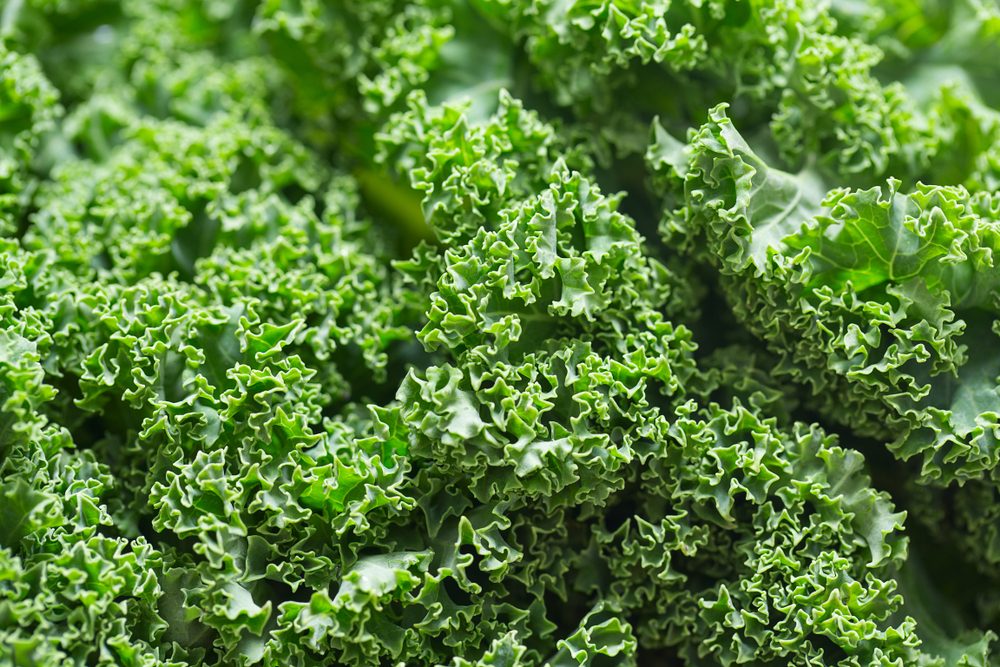
Kale
If you haven’t heard enough about kale, here’s another reason to add this food to your diet: It could help improve circulation. “Kale is exceptional at replenishing red blood cells and increases the blood’s ability to transport more oxygen around the body,” says Arnett Elnahar, RD, based in New York. Bonus: Kale is rich in folate, which may help lower high blood pressure.
Watch out for these foods you shouldn’t eat past the expiration date.
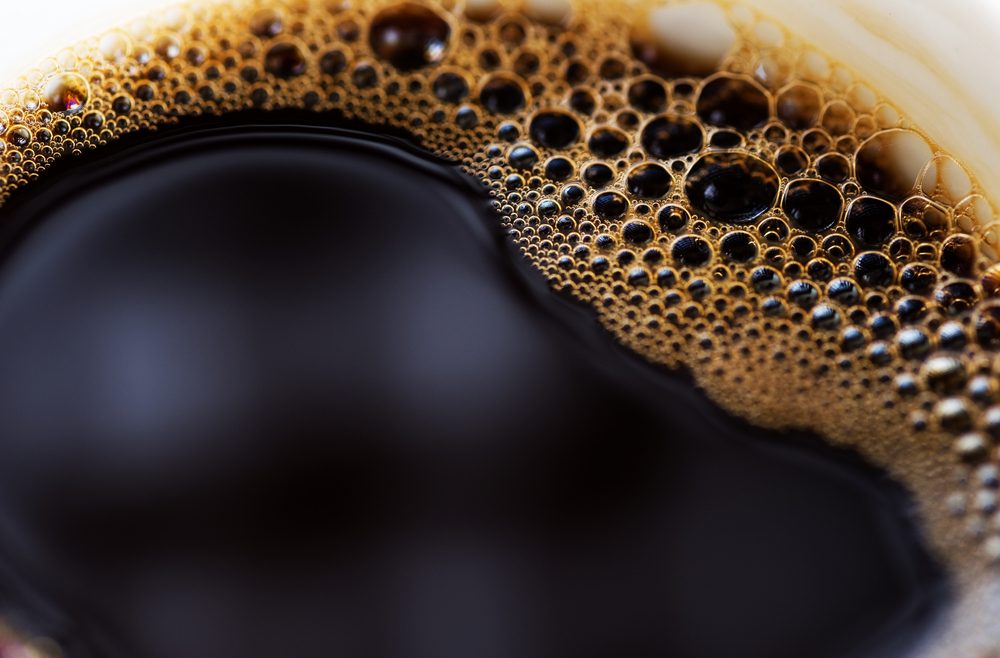
Coffee
Time to wake up and smell the coffee—and improve circulation at the same time. The American Heart Association says moderate coffee drinking (one to two cups a day) isn’t harmful. In fact, a study presented at the American Heart Association’s Scientific Sessions in 2013 showed that those who drank a regular cup of joe had a 30 per cent increase in blood flow over a 75-minute period compared to those who stuck to decaf.
Find out more about what happens to your body when you drink too much coffee.
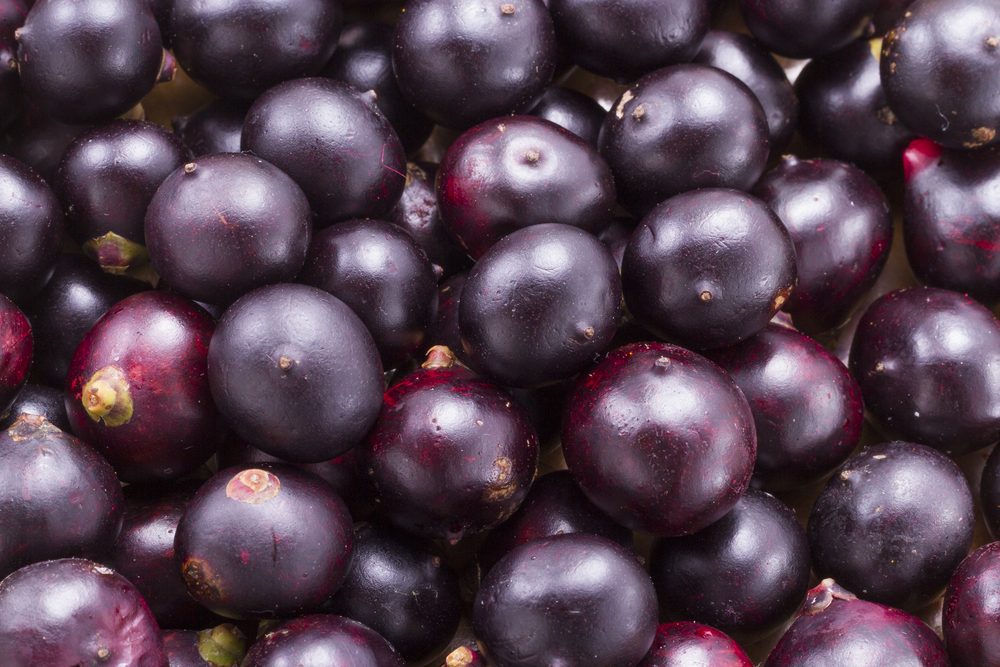
Açaí berries
Açaí berries are another food that lives up to its hype. According to Elnahar, these little wonders have powerful plant sterols (a naturally occurring substance in grains, nuts, seeds, fruits, and legumes) that relax blood vessels and improve circulation. They’re also rich in vitamin A and potassium.
Here are the foods you’re spoiling by putting in the refrigerator.
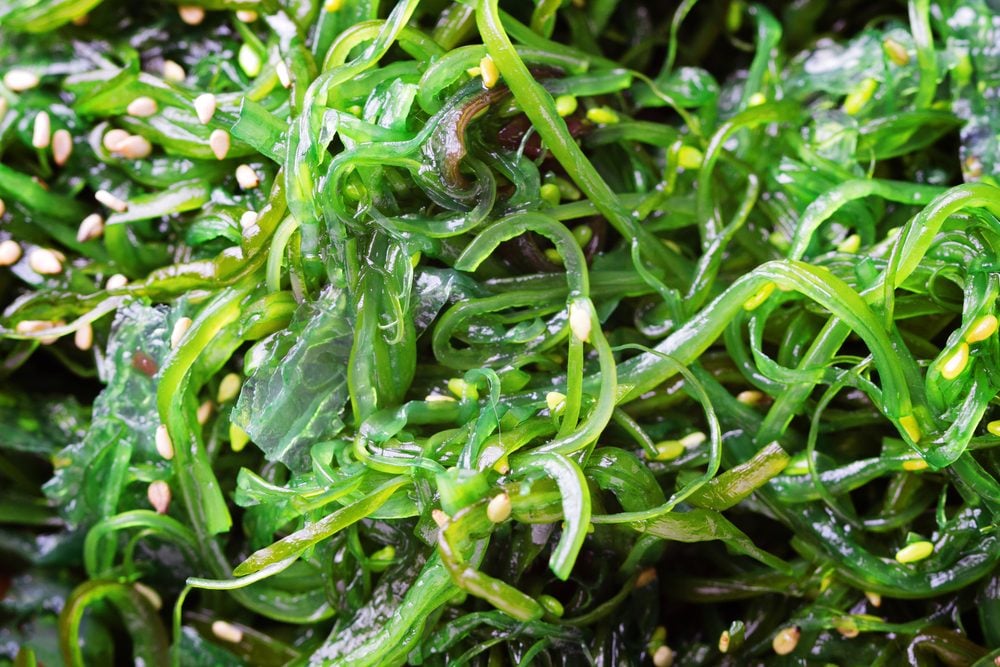
Wakame seaweed
Wakame seaweed is branching out from sushi restaurants and quickly becoming a favourite snack food. “According to a 1998 study of the hypotensive effects of wakame, Japanese researchers found four weeks of eating several grams of dried wakame reduced blood pressure in humans,” says David Nico, PhD, of drhealthnut.com. Other research, such as a study published in the Journal of Clinical Biochemistry and Nutrition, has found benefits in terms of lowering blood pressure, too. Nico suggests choosing high-quality varieties that aren’t contaminated with heavy metals or other impurities.
Keep reading to learn where you should be storing your eggs.
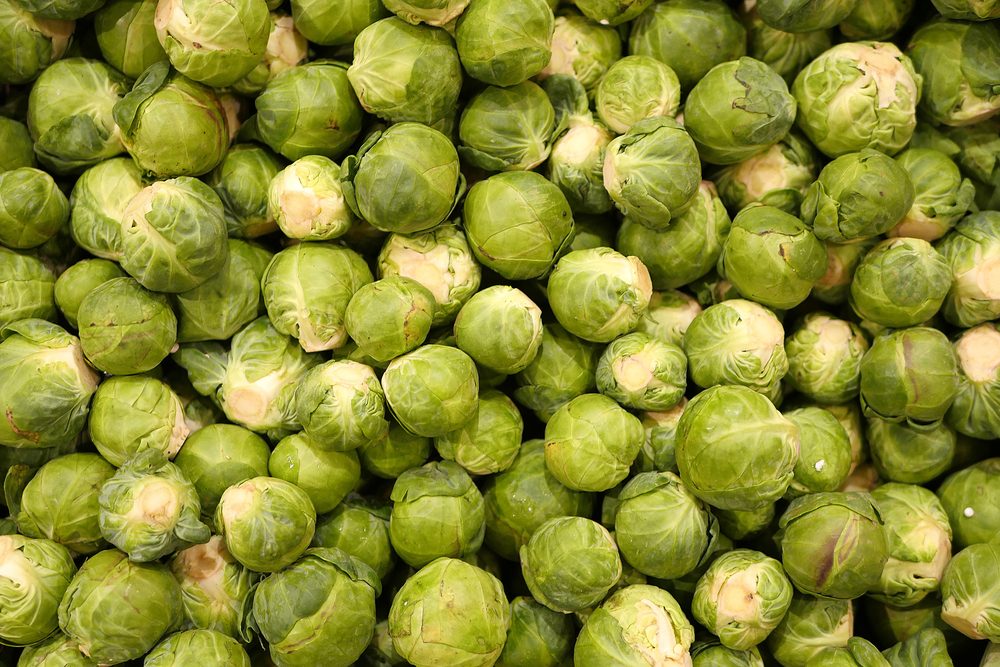
Brussels sprouts
Brussels sprouts and other foods high in vitamin C—including broccoli, tomatoes, oranges, and berries—all help with circulation. “Vitamin C acts as an antioxidant on the lining cells of our arteries to assist in dilation and therefore blood flow,” says Rachel Carlton Abrams, MD, a physician specializing in family and integrative medicine in Santa Cruz, California, and author of BodyWise: Discovering Your Body’s Intelligence for Lifelong Health and Healing.
Here are the foods you should never eat raw.
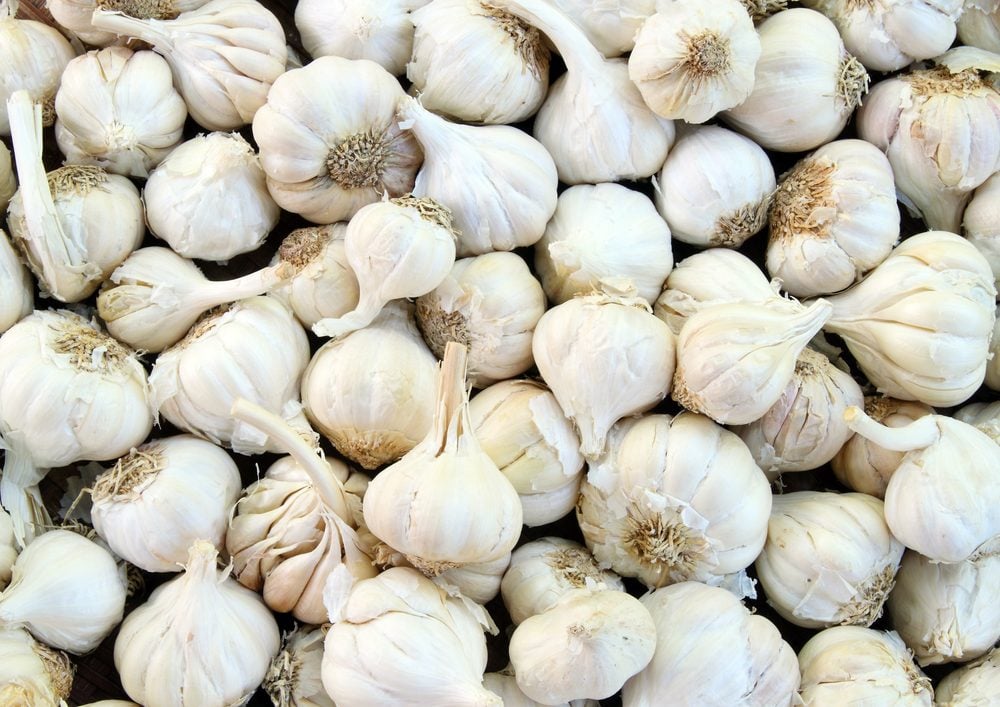
Garlic
You may have to buy more mouthwash if you eat more garlic, but it could be worth it if you’re serious about improving circulation. Studies, such as this one in the Journal of Nutrition, show that consuming garlic cloves can help prevent clogged arteries. “Two to three cloves daily is ideal,” says Dr. Carlton Abrams. You’ll get the most benefits from garlic cloves if you smash or press them prior to cooking.
Avoid these surprisingly unhealthy foods at all costs.